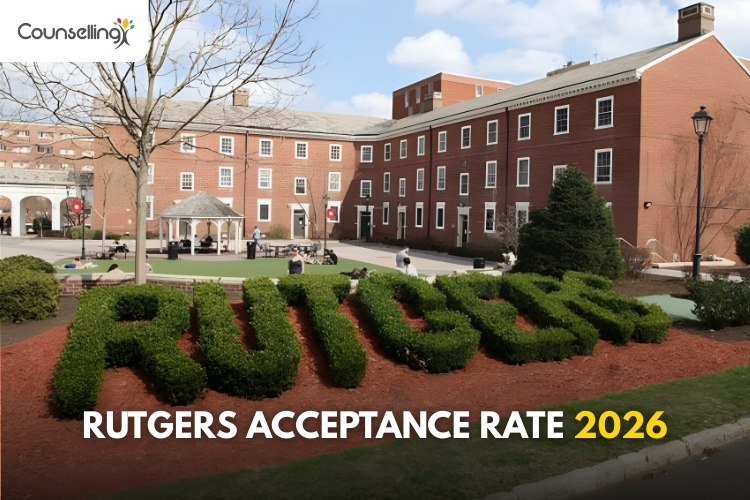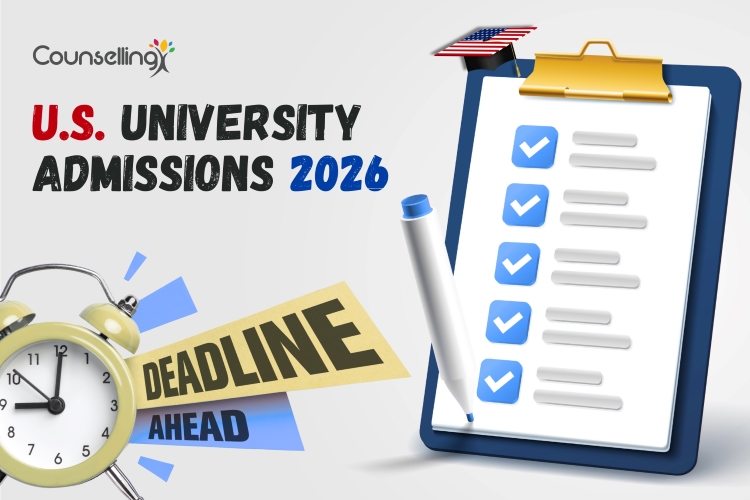15 Commonly Asked College Interview Questions
The commonly asked questions for college or university admission interviews are listed below:- Tell us more about yourself.
- Why does this course interest you?
- Why are you interested in attending this college/university?
- Can you tell us about some of your strengths and weaknesses?
- What skills or experiences do you have related to this course?
- What do you do when faced with challenges or failures?
- Tell us about your previous academic experiences.
- What research study in this field have you found the most interesting?
- What was something you last read that kept you interested?
- What do you plan to do career-wise after your graduation?
- How will you positively contribute to your subject of study?
- How can you contribute to our campus community?
- How will you handle your academic and personal life simultaneously?
- Have you ever encountered a situation where you had to work as a leader?
- What makes you a suitable candidate, and why should we consider you?
Tell us more about yourself.
One of the most frequently asked interview questions requests you to introduce yourself. The question mostly takes people aback since they do not know how to provide a whole picture of who they are. A simple way to answer this question is by:- Giving a brief account of their background
- Highlighting their academic achievements
- Mentioning extracurriculars and experiences that are relevant to the field.
Why does this course interest you?
Universities are interested in finding students who are passionate about the field of their choice. Hence, this question aims to evaluate the student's level of interest in the chosen course. The answer to this question should be specific. Discuss the reasons for your choice with examples. To create a concise answer to this question, you should reflect on the following points:- The books, experiences, or public figures that influenced your interests.
- The topics that interest you the most in the specific field.
- The personal projects that provided you further insight into the particular field.
Why are you interested in attending this college/university?
To answer this question correctly, you must have researched the university and its courses. Your answer should show the committee how well-informed you are about the university. Furthermore, you should list aspects of the university that set it apart from other institutions. Start by relating your goals and plans to the university’s mission and offerings. Once you have discussed that, you can bring to discussion the following elements of the university:- The professors of the course chosen
- The teaching methodology in use
- The diverse and inclusive campus culture
Can you tell us about some of your strengths and weaknesses?
Your answer to this question should be well-thought-out. You should discuss the strengths that best relate to the university's and course's demands. Furthermore, your strengths should portray your potential to excel and succeed. Avoid vague statements that lack examples. Students sometimes make the mistake of calling themselves hard workers or kind individuals. However, these statements do not hold well in the long run. Be specific about your strengths and add a recent example of how you showcased that strength. When discussing your weaknesses, pick genuine ones, but talk about them positively. Tell the interviewer what you have done to improve your weaknesses and how far you have come. Claiming that you have no weaknesses will make you appear ignorant and overconfident. Universities look for students who are self-aware and can adapt. Hence, ensure that your answers display your growth through your strengths and weaknesses.What skills or experiences do you have related to this course?
The question allows you to expand on your academic and work experiences. For your skills, mention those that best apply to your course and elaborate on how they will help you in your studies. Likewise, talk about the experiences that have helped you improve your skills and provided you with a broader perspective.What do you do when faced with challenges or failures?
Everyone has a different set of challenges. However, how you handle these challenges sets you apart from the rest. You can answer this question by:- Giving an example of a challenge you recently faced
- Explaining what you did to overcome the challenge and why
- Discuss what you learned from the experience.
Tell us about your previous academic experiences.
During the interview, you will come across a question about your academic history. To answer this question, you should include more than just a list of your grades and courses. Rather than this superficial approach, answer the question with the following:- Why is each subject meaningful to you?
- What made you decide to take these courses?
- How does each course contribute to your academic goals?
- How do all the subjects relate to each other?
- How will these courses help me during my university?
What research study have you found the most interesting in this field?
You can answer this question by showing interest in the selected subject. Talk about a topic or issue that has intrigued you. Since the topic will differ from course to course, ensure you are honest and display enthusiasm. Your topic should showcase your intellect and knowledge while touching on recent discussions in the chosen field. Hence, select a topic that has yet to be covered extensively, showing the interviewer that you know the recent developments in the field.What was something you last read that kept you interested?
When preparing your interview, you should consider how to answer this question. For starters, pick a book, article, or research paper you feel confident discussing. To pick the written material you would discuss, go for works that are more recent and not mainstream. People make the mistake of choosing books or articles that are popular among the students in a field. Doing so will not help you stand out. Answering the question with a lesser-known book will bring a new perspective and help the interviewer remember you. Lastly, when discussing the book, avoid summarising its subject matter. Discuss in detail which parts interested you or which parts you disagreed with. You can further provide the work’s comparative analysis with a book or article that opposes its views. An answer stating the work's analysis will highlight your critical thinking and subject knowledge.What do you plan to do career-wise after your graduation?
The question aims to understand a student’s ambitions and plans for the future. You can discuss your academic and career goals while answering the question. These plans can vary from person to person. However, some of these plans can include:- Pursuing studies further
- Working on research projects
- Seeking job opportunities in a particular field
- Starting a business project, etc
- Things you are currently interested in
- Skills you want to work on
- Experiences you wish to get out of attending the university
- Various fields and industries you want to learn more about during your university years.
How will you positively contribute to your subject of study?
To better understand how one can contribute to one's chosen field, contact seniors or people who have pursued the same field. Once you know how various individuals have positively contributed to the field, you can answer the question. You can mention the following contributions by relating them to your field:- Research
- Community engagement
- Innovation
- Social impact projects
How can you contribute to our campus community?
Universities need students who contribute to their community and engage in campus life. To answer this question, you must discuss your plans to join various clubs, societies, or events. To make your answer more specific:- Look into all the activities and societies that the university offers.
How will you handle your academic and personal life simultaneously?
Your answer to this question should:- Display your balanced personality
- Showcase your time-management skills.
Have you ever encountered a situation where you had to work as a leader?
This question will allow you to extend your leadership skills and relevant experiences further. Prepare for it beforehand by listing a handful of specific examples.What makes you a suitable candidate, and why should we consider you?
This question will be the perfect chance for you to give your pitch. To answer, you should use brief and compelling arguments on why you are a suitable candidate for the programme. Your answer should:- Give a summary of your unique attributes
- List your experiences that make you stand out
- Discuss some skills that you have worked on
- Mention your achievements and contributions that can help the campus community.
Step to Follow for Your Interview Preparation
Follow the given steps to ensure that you are well-prepared for your interview.- Make Arrangements for Your On-site or Online Interview
- Reflect on Your Course and University Choices
- Read Through Your Application and Take Notes
- Research the University Offerings and Course
- Look into the Current Researches Related to Your Field
- Write Down Questions You Want to Ask Your Interviewer
- Practice for the Interview by Carrying Out a Mock Interview
Make Arrangements for Your On-site or Online Interview
You are required to have arranged your on-site or online interview beforehand. In case of an on-site interview, you must arrange your travel and accommodation. For these arrangements, you have to start early. Begin by deciding your mode of transportation. If you need tickets beforehand, buy them. Lastly, select somewhere close to your interview venue and process your accommodation booking. You must ensure that your laptop and webcam are working for online interviews. If not, test your devices a few days before the interview and get them fixed or replaced. Making these arrangements will, hence, save you from last-minute stress.Reflect on Your Course and University Choices
Once you have sorted out your arrangements, start preparing for what to say in the interview. Begin by reflecting on why you have chosen a specific course and university. If you cannot answer the reason for your choice of university, you will leave an impression of being impulsive and making bad decisions. To better defend your university choice, you can dwell on how your values align with the university’s. Lastly, for your chosen major, you must give concrete reasons for your interest and decision. Avoid being casual by saying you just went for it or someone else made you choose it. Furthermore, do not only mention the potential of the field income-wise.Read Through Your Application and Take Notes
When preparing for your interview, you should read through your application. This step will help you identify points that you would like to repeat during the interview and find points you have yet to mention in your application that you would want to add. Your personal statement is the part of the application you should thoroughly study. Understand the narrative you have built in your statement and relate all your interview answers to that narrative. You are further advised to align your interview answers with the details in your statement. However, do more than just repeat everything you mentioned in your application.Research the University Offerings and Course
To answer many of your interview questions, you will need information about all the university's opportunities. These opportunities can relate to clubs, societies, events, charities, or internships. Mentioning specific university offers you would like to take advantage of will show your research and interest in the university. Likewise, you can leave a lasting impression if you familiarise yourself with the course details and faculty of your chosen field. The interviewer will know you made an informed decision and are genuinely interested in the subject.Look into the Current Researches Related to Your Field
While academics are essential, the interviewer also wishes to see your wider academic reading habits. If you fail to mention any recent field research during your interview, it will show that you are academically sound syllabus-wise only. Furthermore, the interview will feel like you lack the passion for staying aware and up-to-date about your field. Mention research that has genuinely grabbed your attention, and feel free to discuss it during the interview.Write Down Questions You Want to Ask Your Interviewer
Once your interview is over, the interviewer will always give you an opening to ask questions. If you fail to ask any questions, you will seem uninterested. Hence, before the interview, write down all the questions you want to ask the interviewer. These questions can be related to campus life, course load, or information not available on their website.Practice for the Interview by Carrying Out a Mock Interview
Request your counsellor to conduct your mock interview. The interview will help you realise your shortcomings and provide helpful feedback. It will help you correct your body language and evaluate your ability to handle high-pressure situations. If you find yourself lacking somewhere, it will be an excellent opportunity to start practising again and improving your answers. Your counsellor can also help you write precise and appropriate answers to all the expected questions.
Tips to Keep In Mind for Interview Preparation
- Wear something comfortable yet formal
- Arrive to the interview on time
- Make sure you communicate effectively
- Be honest and confident in your answers
- Listen to the questions carefully
- Be ready for group discussions
- Prepare for subject-specific questions too
- Think before answering your questions
- Be factful and avoid being vague and generic
- Ask specific questions from the interviewer











